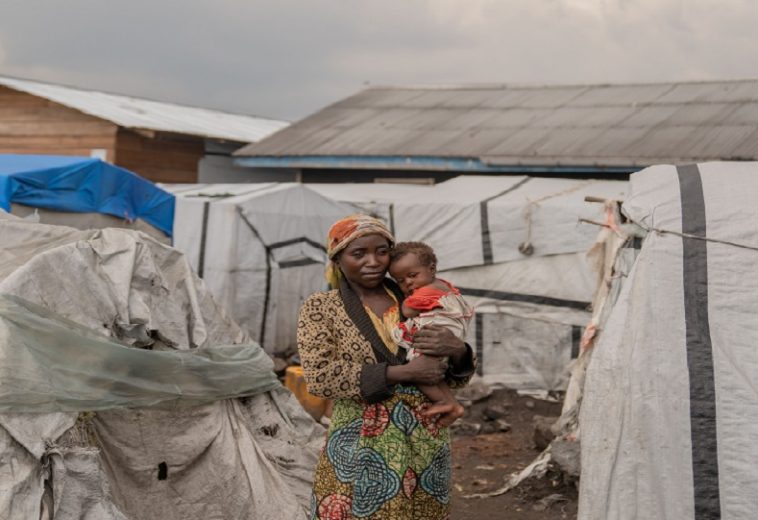In the thrilling final days of the 2024 U.S. presidential race, Kamala Harris and Donald Trump are fiercely competing to capture the favour of voters across several critical swing states. Trump’s campaign is intensifying his message on crime and immigration, while Harris is focused on social reforms and economic inclusion, aiming to position herself as a progressive yet stabilising force.
The election has garnered significant international attention, particularly in Africa, where observers closely watch how the outcome could shape policies affecting Black communities globally.
America First versus Global Cooperation
In what would be his second term, Trump champions a distinctly “America First” policy, focusing on reshoring manufacturing, reducing trade reliance on China, and increasing domestic energy production. This approach, while resonant with many Americans focused on domestic issues, has raised concerns among international allies about the implications for global cooperation and stability. Trump’s stance has led him to distance the U.S. from international organisations like the WHO, and he has voiced scepticism about NATO and multilateral agreements like the Paris climate accord.
In contrast, Harris, continuing the Biden administration’s diplomatic approach, advocates for increased U.S. engagement with global allies, environmental responsibility, and cooperative health strategies. Her support for the Paris Agreement and multinational pandemic preparedness initiatives signals a return to a globally engaged America. Experts suggest that, for Africa, Harris’s presidency could mean continued and even expanded partnerships, especially in renewable energy sectors, climate adaptation, and health security. “Harris has the potential to reinvigorate the U.S.-Africa partnership through targeted investments that support African-led initiatives, particularly in sustainability,” notes policy analyst Dr. Mumbi Macharia from the Africa Policy Institute.
What Black Communities Should Expect
Domestically, the treatment of Black Americans under the Trump administration faced significant criticism, particularly concerning issues of policing, voting rights, and economic inequality. During his previous term, Trump’s response to the Black Lives Matter protests and his rhetoric around issues affecting Black communities were points of contention, leading to a rise in social justice activism. Harris, who identifies as Black and South Asian, has focused heavily on issues of racial justice, supporting reforms in policing and advocating for policies that benefit historically marginalised groups.
Internationally, Harris’s election could signify a strengthened diplomatic stance against racial inequality worldwide, positioning her administration as a potential ally for Black communities in Africa. Experts contend that Harris’s background and policy priorities align more closely with promoting human rights across borders.
Although Trump’s rally has prioritised Black communities, while rooted in a narrative of economic empowerment, it may resonate less with African communities focused on racial justice. Critics argue that his reluctance to address racial disparities could signal weaker support for initiatives that target racial equality and civil rights, both domestically and abroad.
Climate and Energy Action: The African Perspective
Climate change remains one of Africa’s greatest challenges, with disproportionate impacts on food security, water availability, and natural disasters. The Harris campaign frames climate change as an “existential threat,” with Harris often citing her record as a climate advocate. Harris’s support for the Inflation Reduction Act, the largest climate investment in U.S. history, underscores her commitment to combating global warming through green energy and emissions reduction. If elected, her policies would likely strengthen U.S.-Africa collaborations on climate resilience, an area where African countries are already taking bold steps with projects like the Great Green Wall in the Sahel region.
Trump’s approach to climate, however, significantly differs. Known for his scepticism toward climate science, Trump has vowed to increase fossil fuel production and reduce green energy regulations. While Trump argues this approach will bolster American energy independence, African environmental experts fear it would lessen the U.S.’s role in supporting climate adaptations in vulnerable regions like Sub-Saharan Africa.
Economic Diplomacy and Trade: What’s at Stake for African Economies?
The economic policies of Harris and Trump each present distinct outcomes for African economies. Under Biden and Harris, the U.S. has focused on trade partnerships to foster mutually beneficial growth. Initiatives such as Prosper Africa and the African Growth and Opportunity Act (AGOA) aim to expand trade and investment between the U.S. and African nations, creating economic opportunities on both sides. Harris’s approach would likely see the continuation of these programs, offering African economies steady access to American markets and potential growth in sectors like technology and manufacturing.
Trump’s trade strategy involves renegotiating trade deals to benefit American industries, often to the detriment of partner economies. His approach to Africa could mean higher tariffs and a reduction in trade incentives, potentially straining AGOA and limiting market access for African businesses.
Global Health Security: A Test of Pandemic Preparedness
COVID-19 demonstrated the need for coordinated global health responses. Under Biden and Harris, the U.S. has reengaged with the WHO and supported international vaccine distributions. Harris’s emphasis on global health security would likely mean continued support for health partnerships in Africa, providing funding for pandemic preparedness, disease prevention, and healthcare infrastructure improvements.
Trump’s withdrawal from the WHO during his previous term, however, left a gap in global health leadership. If re-elected, he may continue prioritising a nationalistic approach, which, experts warn, could hamper collective efforts to tackle future pandemics. “A Trump administration could shift focus away from international health alliances, potentially affecting African health systems that rely on U.S. aid for combating diseases,” says Dr. Samantha Roberts, a global health expert.
The Bigger Picture: A Crossroads for U.S.-Africa Relations
The 2024 election represents more than a choice between two candidates; it reflects America’s direction as a global leader and its potential influence in Africa. While Trump’s policies appeal to Americans focused on domestic issues, they raise concerns in Africa over reduced support for trade, climate action, and health security. Harris, meanwhile, embodies a collaborative approach, likely strengthening multilateral alliances and offering Africa continued partnerships on issues like climate resilience and trade.
In the closing weeks of the heated campaign, Harris and Trump present voters and the world with a choice between differing visions for America and its role on the global stage. For Africa, the stakes could not be higher, as the continent prepares to navigate either strengthened cooperation under Harris or a recalibrated “America First” landscape under Trump.




